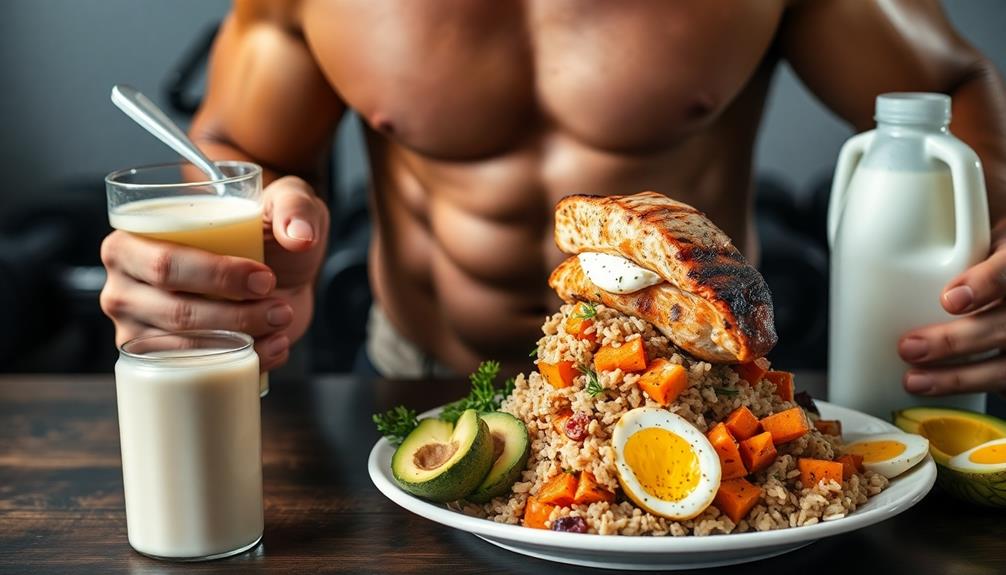When bulking up, fuel your body with these top 10 foods to maximize muscle growth. Lean beef and chicken breast provide high-quality protein, while eggs offer essential amino acids. Greek yogurt and salmon deliver protein and healthy fats. For complex carbs, choose quinoa and oats. Almonds pack a punch with protein and healthy fats, and bananas offer quick energy for workouts. Don't forget sweet potatoes, which are rich in vitamins and fiber. These nutrient-dense options will support your muscle-building goals, enhance recovery, and provide the energy you need for intense training sessions. Discover how to incorporate these powerhouse foods into your diet for best results.
Core Insight
- Lean meats like chicken breast and beef provide high-quality protein essential for muscle growth and repair.
- Complex carbohydrates such as quinoa and sweet potatoes offer sustained energy for intense workouts.
- Greek yogurt and eggs are versatile protein sources that support muscle building and recovery.
- Bananas provide quick energy, aid in post-workout recovery, and offer essential vitamins and minerals.
- Healthy fats from sources like almonds and avocados support hormone production and overall health during bulking.
Lean Beef
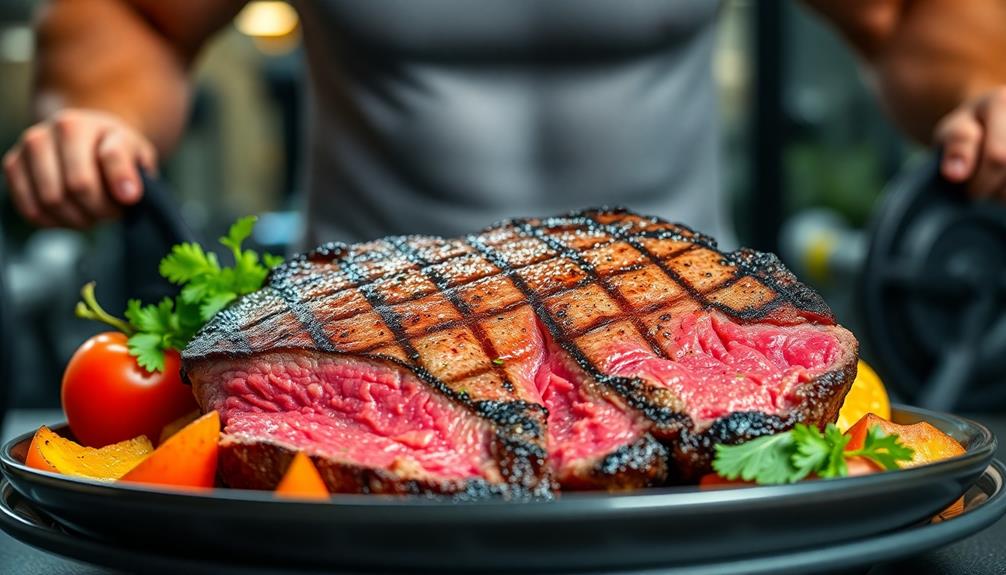
Lean beef is an excellent source of protein, essential for building muscle during your bulking phase. A 3-ounce serving provides about 22 grams of high-quality protein, similar to whey protein powders, making it a great whole food option for increasing your protein intake without adding too much fat.
Lean beef also contains important nutrients like iron, which helps deliver oxygen to your muscles, enhancing your workout performance, and zinc, which supports testosterone production and boosts your immune system.
To add lean beef to your diet, choose cuts such as sirloin, flank steak, or 95% lean ground beef. These options give you the protein you need without too much fat. Combine lean beef with complex carbohydrates and vegetables to create a balanced, muscle-building meal that supports your bulking goals.
Eggs
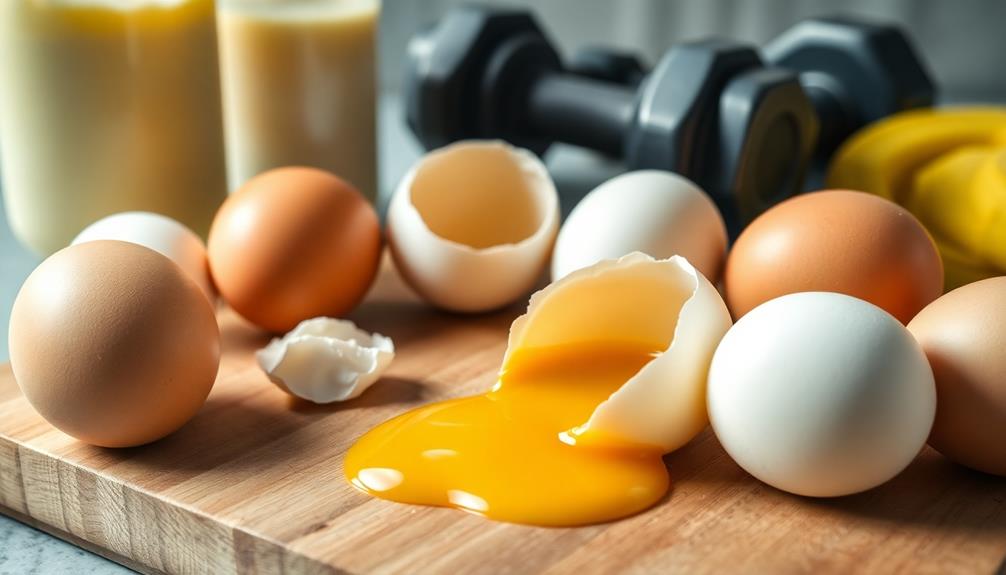
Eggs are a great food to eat when you're trying to build muscle. They have a lot of high-quality protein, important amino acids, and healthy fats. Each egg gives you about 6 grams of protein, so they're a good way to build muscle. After your workout, you can eat eggs with protein bars to make sure you get enough protein and help your muscles recover.
You can cook eggs in many ways, like boiling, scrambling, or frying them. You can also use them in different recipes. Eggs have vitamins and minerals that are good for your health while you're bulking up, like B vitamins, vitamin D, and choline.
It's okay to eat whole eggs, including the yolks. New research shows that the cholesterol in food doesn't really change the cholesterol in most people's blood. Try to eat 3-4 whole eggs every day to get all their benefits. If you need more protein, you can add more egg whites to your meals.
Greek Yogurt
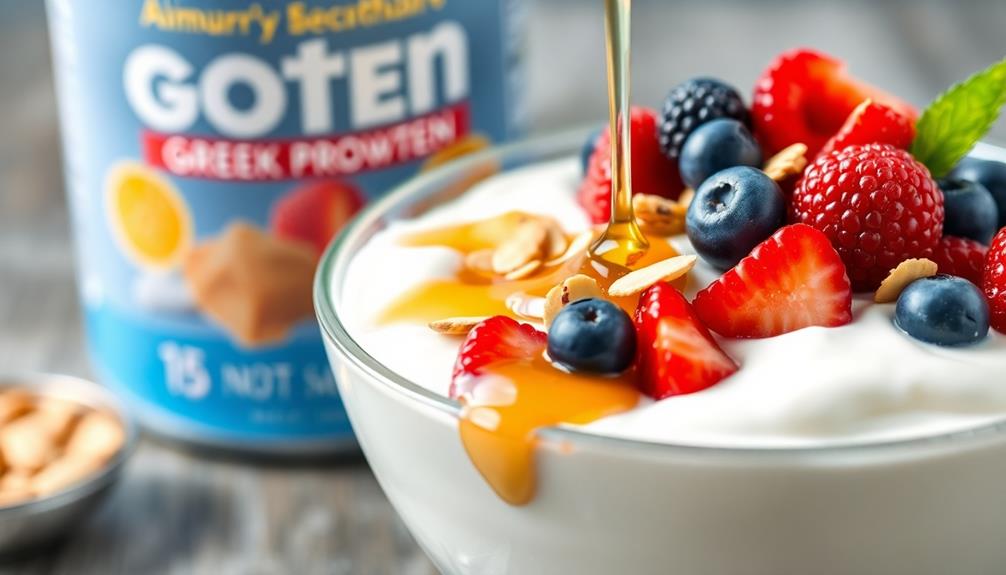
Greek yogurt is a great food to eat when you're trying to build muscle. It has a lot of protein and important nutrients that your body needs. Greek yogurt is thick and creamy, and you can use it in many different recipes, from smoothies to sauces. If you don't eat dairy, vegan protein powders can give you similar benefits along with extra healthy ingredients and fiber.
Greek yogurt is good for bulking up because:
- It has a high amount of protein, which helps your muscles grow and recover
- It contains probiotics that are good for your gut health and digestion
- It's full of calcium and vitamin D to keep your bones strong
- It has a nice balance of carbs and fats
When buying Greek yogurt, choose plain kinds so you don't get added sugar. You can make it sweet by adding fruit or honey if you want. To get more calories and nutrients for building muscle, you can mix in granola, nuts, or seeds.
Salmon
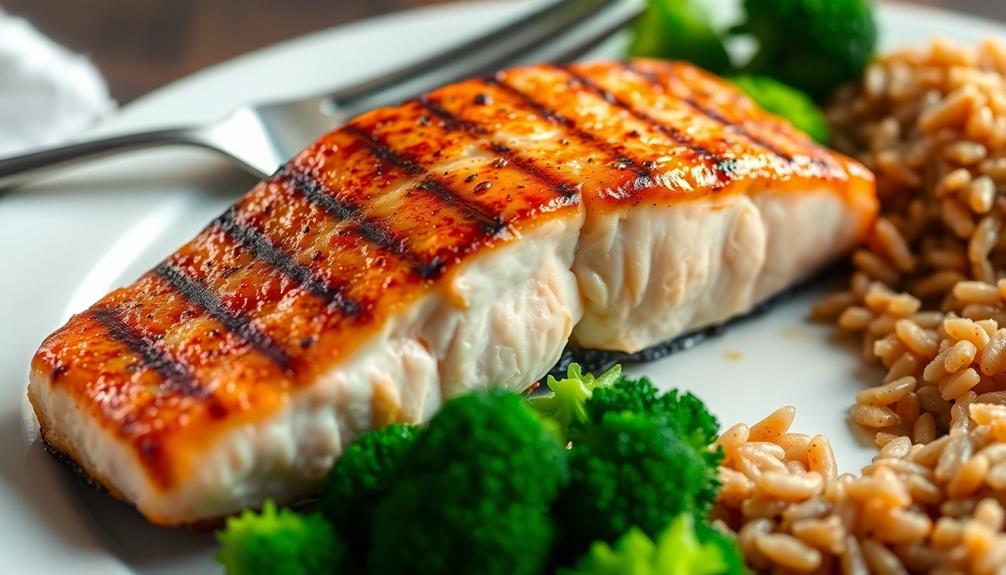
Salmon is an excellent food for building muscle. It has lots of high-quality protein and healthy omega-3 fats, which help muscles grow and recover. Salmon also gives you vitamin D, which is important for strong bones and muscles.
A 100g serving of salmon contains:
- 20g of protein (40% daily value)
- 2.3g of omega-3 fats (144% daily value)
- 526 IU of vitamin D (66% daily value)
- 2.9 mcg of vitamin B12 (121% daily value)
Try to eat salmon 2-3 times per week. You can cook it in different ways, like grilling, baking, or pan-searing. Serve it with complex carbohydrates and vegetables for a balanced meal that will support your muscle-building goals.
Quinoa
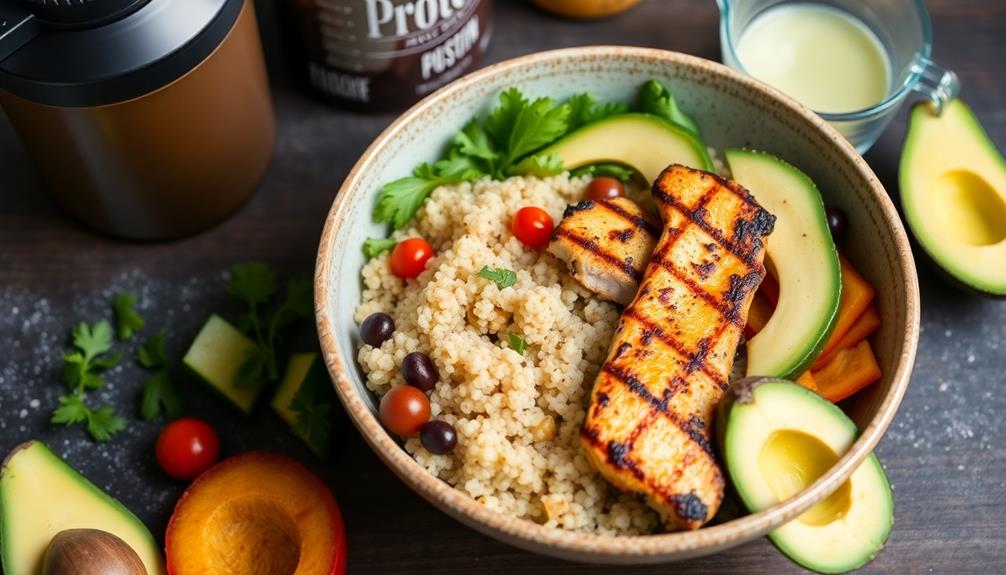
Quinoa is a great grain for building muscle. It has all nine essential amino acids that your body needs. This makes it perfect if you want to gain muscle mass while bulking. Some people like protein bars for getting protein. But quinoa is a more natural choice if you prefer whole foods.
Quinoa is good for bulking because:
- It's high in protein (8 grams per cup)
- It has complex carbs for long-lasting energy
- It's a good source of fiber for digestion
- It's full of vitamins and minerals like iron and magnesium
Quinoa is very versatile. You can use it as a base for high-protein bowls, put it in salads, or even eat it for breakfast. It's simple to cook and you can make a lot at once. This makes meal prep easy during your bulking phase.
Sweet Potatoes
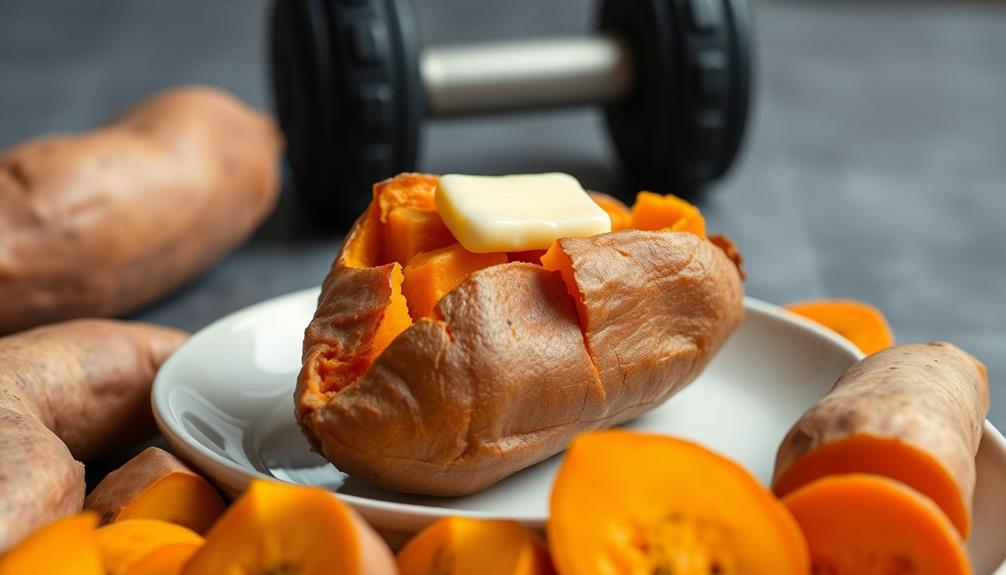
Sweet potatoes are another great food for bulking up. They are full of complex carbs that give you long-lasting energy for workouts and building muscle. They also have a lot of fiber, which helps with digestion and makes you feel full. Just like gluten-free protein powders, sweet potatoes are a good choice if you have food allergies or restrictions, since they are naturally gluten-free and very nutritious.
Sweet potatoes have a lot of important nutrients too. They are high in vitamins A and C, potassium, and antioxidants, which all support your health when you're training hard. Vitamin A is especially good for keeping your skin and eyes healthy.
Plus, sweet potatoes have a lower glycemic index than regular potatoes. This means they won't make your blood sugar spike quickly, so you'll have steady energy throughout the day. It's easy to add sweet potatoes to your diet by baking, mashing, or putting them in stews and soups.
Oats
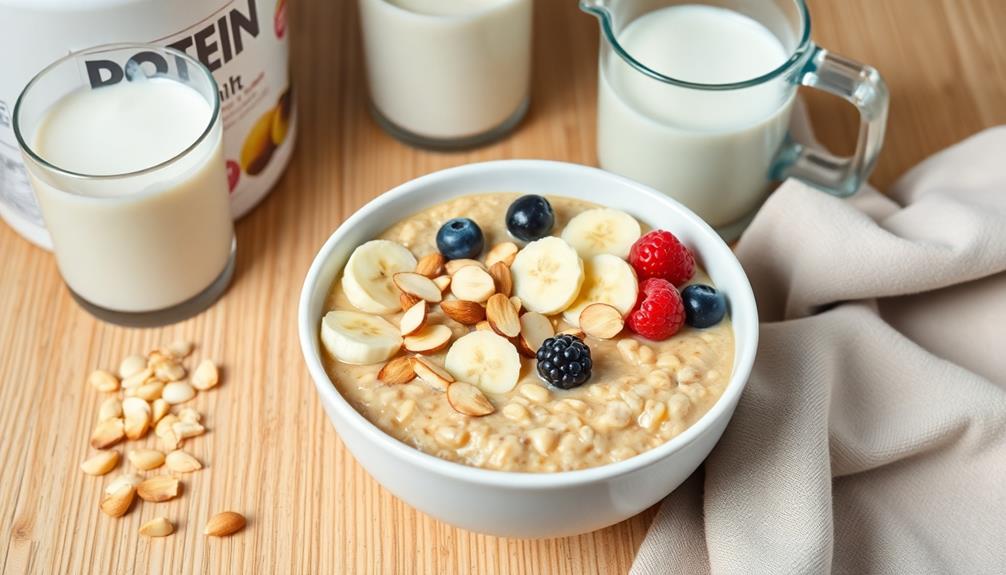
Oats are a fantastic food for bulking up. They're full of complex carbs that give you long-lasting energy for tough workouts. Oats also have lots of fiber, which is great for digestion and keeping you full. Plus, they've got a good amount of protein to help your muscles grow and recover. If you can't eat gluten, oats are a perfect substitute for wheat. They go well with gluten-free protein powders to boost your protein intake.
There are many ways to add oats to your diet:
- Make overnight oats for a quick and easy breakfast
- Put oats in your protein shakes for extra calories and nutrients
- Use oat flour when baking for a healthy twist
- Cook savory oatmeal with eggs and veggies for a filling meal
No matter what type of oats you choose – steel-cut, rolled, or instant – you'll get the benefits of this nutritious grain. Just remember to combine oats with protein sources and healthy fats for a well-rounded bulking diet.
Almonds
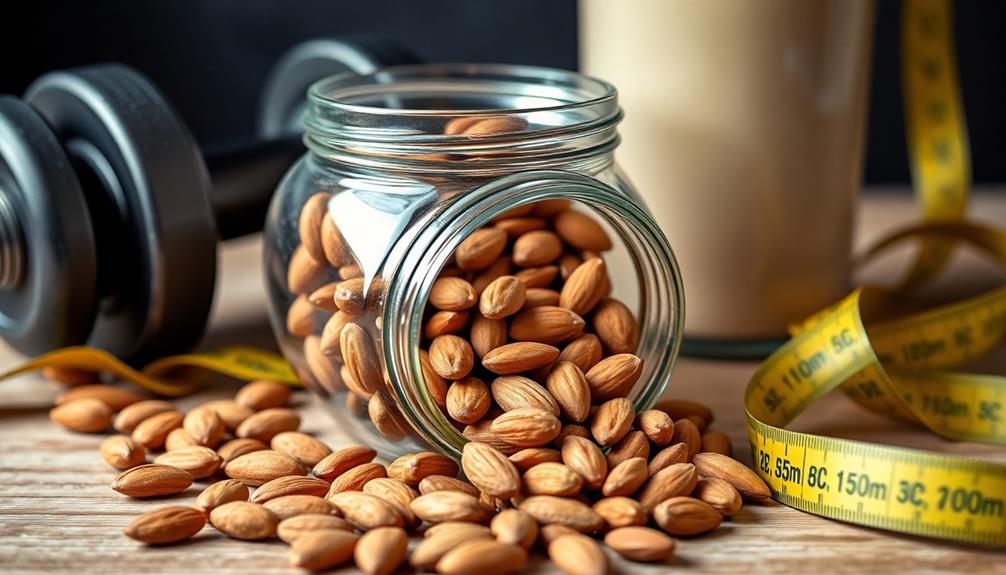
Almonds are great for bulking up, even though many people don't think of them that way. They have lots of healthy fats, protein, and calories. All of these nutrients help you gain weight and build muscle. Almond butter is even better because it packs more nutrients and calories into a smaller amount.
A single handful of almonds has around 164 calories, 6 grams of protein, and 14 grams of fat. They also give you vitamin E, magnesium, and fiber. The high calories give you extra energy for bulking, and the protein helps your muscles grow and recover.
It's easy to add almonds to your diet. You can snack on them between meals, put them in smoothies, or sprinkle them on salads and yogurt. For even more calories, spread almond butter on whole-grain toast or mix it into oatmeal.
Chicken Breast
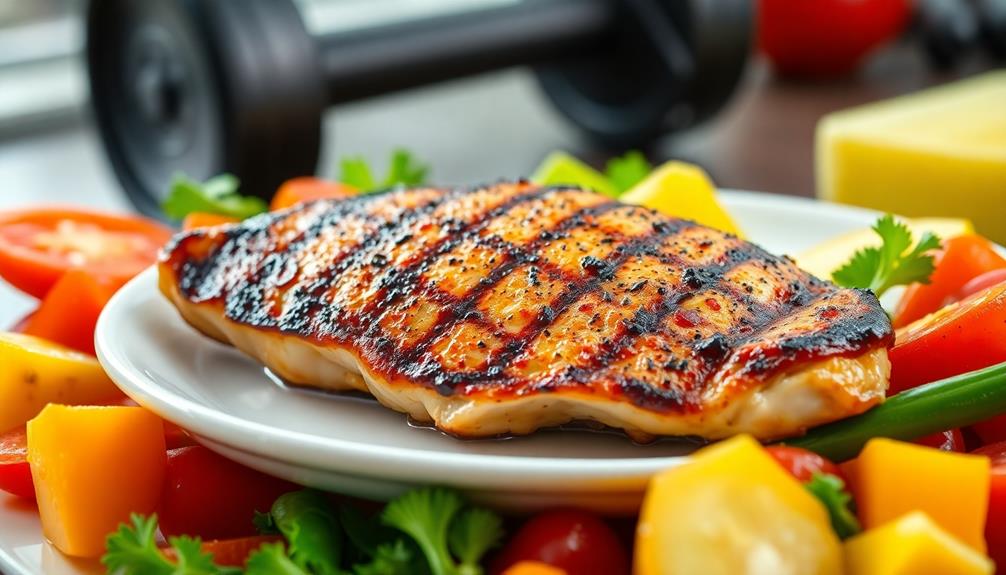
Chicken breast is a top choice for bodybuilders looking to bulk up. It's loaded with protein, which helps you build and repair muscle. You can cook it in many ways, so it's easy to eat often. Chicken breast is also low in fat, so you can get enough protein without too many calories. Supplements can help, but chicken breast should be a main part of your diet. Always cook chicken safely to avoid getting sick.
Key benefits of chicken breast for bulking:
- About 31 grams of protein per 100 grams
- Low fat content, so it's easy to balance your nutrients
- Has essential amino acids for muscle growth and recovery
- Easy to cook and use in many recipes
When bulking, try to eat chicken breast at least once a day. It will help you get enough protein and support your muscle gains.
Bananas
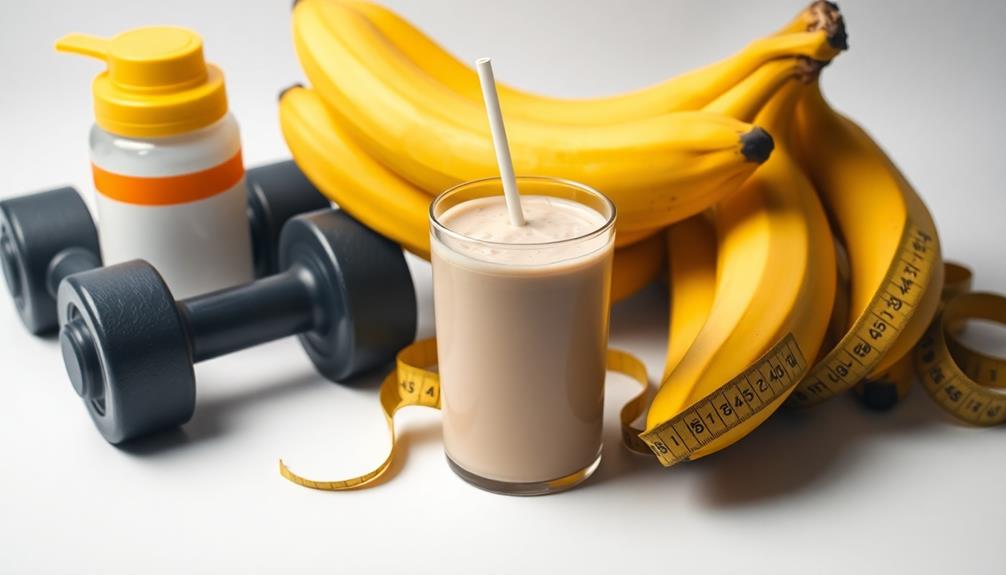
Bananas are a great fruit to eat when you're trying to bulk up. They have a lot of carbohydrates, which give you energy for your workouts and help you recover after exercise. Bananas also have fiber, which is good for your digestion and makes you feel full. Some people may need to be careful with how many bananas they eat when they're not trying to gain weight, though.
Bananas have important vitamins and minerals like vitamin B6, vitamin C, and magnesium. These nutrients help your muscles grow and recover, and they're good for your overall health. The natural sugars in bananas make them a perfect snack before a workout or when you need a quick energy boost.
It's easy to add bananas to your bulking diet. You can put them in protein shakes, eat them with peanut butter for a high-calorie snack, or slice them on top of oatmeal for a filling breakfast. Bananas are a great choice for bulking because they're versatile and convenient.
Frequently Asked Questions
How Many Calories Should I Consume Daily During a Bulking Phase?
You'll need to consume more calories than you burn daily. Aim for a surplus of 300-500 calories above your maintenance level. Calculate your Total Daily Energy Expenditure (TDEE) and add this surplus to determine your daily caloric goal.
Can I Bulk Without Gaining Excessive Fat?
Yes, you can bulk without gaining excessive fat. It's called a "lean bulk." Focus on a moderate calorie surplus, prioritize protein intake, and maintain a structured workout routine. You'll build muscle while minimizing fat gain.
Should I Take Supplements While Bulking?
While bulking, you don't necessarily need supplements. However, they can be helpful. Consider adding protein powder, creatine, and multivitamins to support muscle growth and overall health. Always prioritize a balanced diet before relying on supplements.
How Long Should a Typical Bulking Phase Last?
Your bulking phase should typically last 3-6 months. It's important to track your progress and adjust as needed. Listen to your body and don't overdo it. Remember, you're aiming for gradual, healthy weight gain.
What's the Ideal Macronutrient Ratio for Bulking?
For bulking, you'll want to aim for a macronutrient ratio of 40-50% carbs, 25-35% protein, and 20-30% fat. This balance supports muscle growth and energy needs. Adjust based on your body's response and training intensity.

